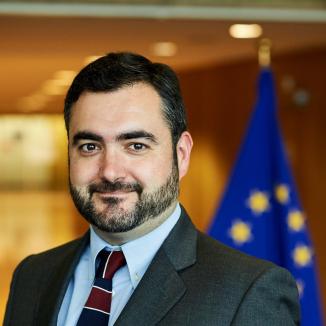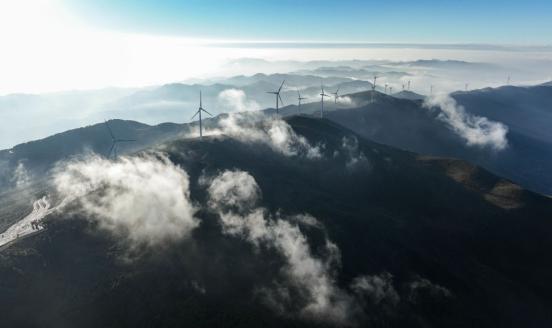Climate Targets 2040: Bridging Modelling and Policy
Speakers
Robert Pietzcker
Senior Scientist, Potsdam Institute for Climate Impact Research
Vicky Pollard
Head of Unit, European Commission, DG Clima
Bas van Ruijven
Group Leader, Sustainable Service Systems Research Group, IIASA
Miguel Gil Tertre
Chief Economist, Directorate-General, European Commission, DG ENER
Georg Zachmann
Senior fellow
Agenda
Lunch
12:30-13:00Agenda
Public Session
Agenda
Framing the 2040 climate target discussions
13:00-13:10- Georg Zachmann, Senior fellow
Agenda
Europe’s 2040 targets through the lens of Integrated Assessment Models
13:10-13:25- Bas van Ruijven, Group Leader, Sustainable Service Systems Research Group, IIASA
Agenda
How does the 2040 target look across models for climate neutrality pathways?
13:25-13:40- Robert Pietzcker, Senior Scientist, Potsdam Institute for Climate Impact Research
Agenda
Comments by representatives from the European Commission’s Directorate-General for Climate and Directorate-General for Energy
13:40-13:50- Vicky Pollard, Head of Unit, European Commission, DG Clima
- Miguel Gil Tertre, Chief Economist, Directorate-General , European Commission, DG ENER
Agenda
Panel discussion and Q&A
13:50-14:30
The EU must declare its 2040 climate targets by the beginning of 2024, as required in the European Climate Law. To inform, justify and communicate the targets, policymakers will rely on energy, climate and economic modelling of the impacts of various emission mitigation pathways. The main type of models used to assess the trade-offs related to different pathways are detailed-process Integrated Assessment Models (IAMs), contributing to IPCC and other scientific reviews.
At this event, the panellists, which include European policymakers and modellers involved in leading research projects on modelling climate mitigation discussed the considerations for the 2040 targets and how modelling can support policymaking in this space. Emerging challenges in the climate policy space were discussed as well as the potential model development to respond to the changing needs of policymaking.
The event also served to launch a first policy brief that addresses the challenges and opportunities associated with delivering the EU’s 2040 climate targets and more broadly informing international climate negotiations towards the global stocktake process.
This is an joint output of Net Zero Pathway Research through Integrated Assessment Model Advancements (PRISMA), a project that has received funding from the European Union’s HORIZON Research and Innovation Actions under grant agreement No. 101081604, and of European Climate and Energy Modelling Forum (ECEMF), a project that has received funding from the European Union’s Horizon 2020 programme under grant agreement No. 101022622.









